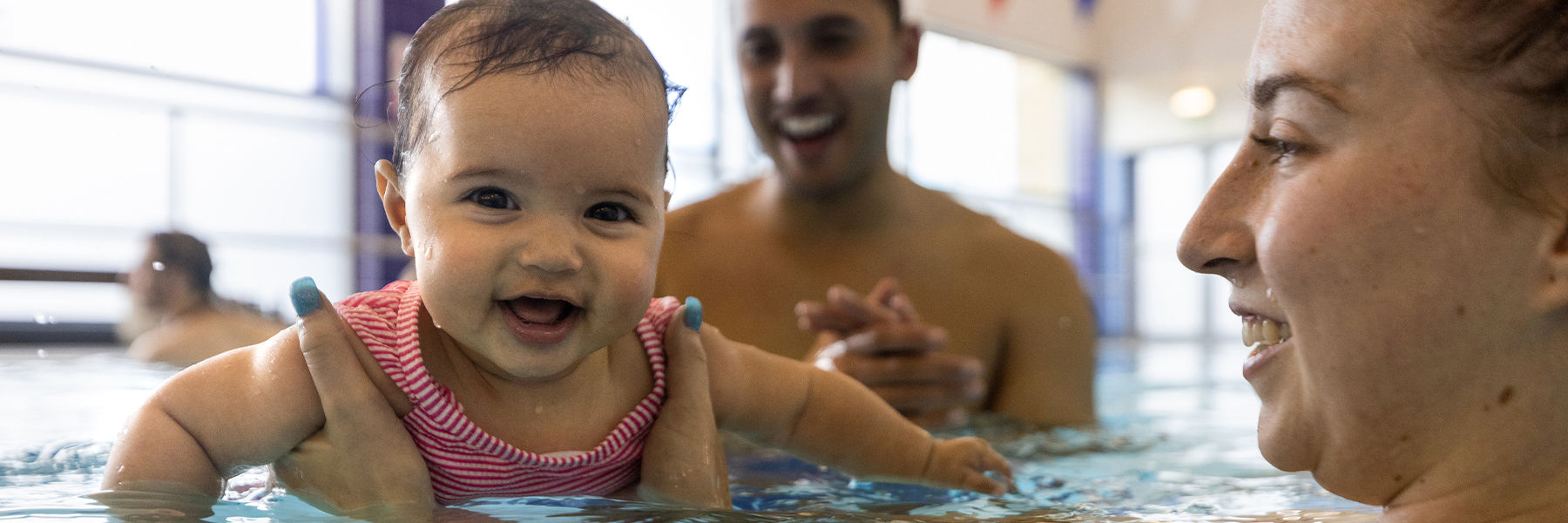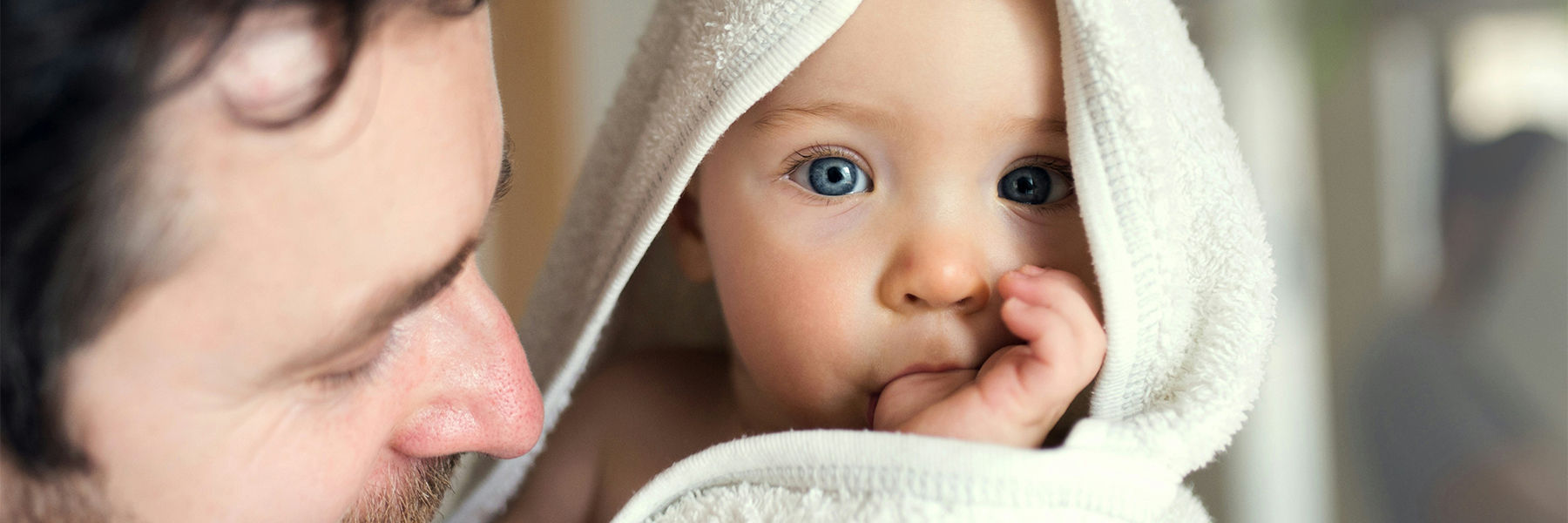Use arrow keys to navigate through the menu items. Use Tab key to navigate through the menu banners.
Making A Splash: Your Baby's First Swim

Making A Splash: Your Baby's First Swim
Discover the joys and benefits of baby swimming with our essential tips
It's easy to get caught up in all the fun activities to do with your baby during maternity leave. From music classes to baby massage, the options are endless. But have you considered taking your little one swimming yet?
Introducing your baby to swimming early helps them become confident swimmers as they grow. Babies naturally enjoy the water, and parent-baby swim sessions offer a safe and fun way for them to splash around!
Is swimming good for my baby?
Yes! There are numerous benefits for your baby when they go swimming. According to experts at Swim England, baby swim sessions can help in the following ways:
-
Building water confidence from an early age
-
Working, strengthening, and building muscles
-
Stimulating and developing their brain
-
Bonding with you – they’ll have your undivided attention in the pool
-
Building an appetite – they’ll be ready for a feed afterwards, so factor that into your post-swim plan
-
Helping them sleep well later in the day or night – exercise and stimulation should tire them out nicely.
But you will also benefit, as new mum Kyra Adamu explains:
“I found that baby swim classes gave me something to look forward to each week. To my surprise, they were really fun, and I met other mums and dads through them. I felt calmer and happier afterwards and I noticed the improvement in my baby’s water confidence as the weeks went by. Although getting us both changed afterwards was a bit of a hassle, it was worth it! I’d also recommend swimming for the bonding time it gave us away from the house,” she says.
When can I take my baby swimming?
According to the NHS, you can take your baby swimming at any age, both before and after they have been vaccinated.
“As long as your baby is well and doesn’t have a fever, they can go swimming as soon as you feel ready,” says paediatrician Dr Rachael Barr, aka @thekidsdoctor_ on Instagram. “Just keep in mind that little babies get cold very quickly, so check the water temperature is okay and consider if they need extra layers like a wetsuit if it’s a bit cool.”
The water temperature for babies under three months old should be a warm 32°C, and for babies aged three to 12 months, it should be at least 30°C.
“If the main pool is a bit chilly, opt for the learner pool, which is usually heated to a higher temperature,” adds Dr Rachael. “Pools specifically designed for babies are usually warmer than regular pools.”
It’s best to give swimming a miss if your baby has a tummy upset, cold, cough or ear infection. Particularly with a tummy upset, you should avoid swimming pools for 48 hours after their symptoms have completely gone. If your little one is premature or has an underlying health problem, check with your doctor or health visitor before taking them swimming.
How to find baby swim sessions
Find your nearest pool here. Most pools provide details of parent and baby sessions on their website.
The following organisations offer swimming lessons for babies and children, focusing on teaching them to swim independently and be safe in the water:
-
Water Babies offers swim classes from birth
-
Better Leisure runs classes from the age of three months
-
Puddle Ducks runs lessons for babies from birth.
What do baby swimming lessons involve?
Baby swimming classes build water confidence, water safety, and swimming skills through activities such as games, movements, singing, and gentle splashing. You may be encouraged to give your baby lots of eye contact and cuddles, making the sessions a lovely bonding experience.
Newborns have a strong laryngeal reflex, which helps them hold their breath and protect their airway when submerged in water. This reflex diminishes around six months of age. Some classes may take advantage of babies’ laryngeal reflex, even teaching them to swim underwater, but always with close, expert supervision.

What kit does my baby need to go swimming?
If you’re ready to make a splash with your little one, you’ll need these essentials:
-
Disposable swim nappies
These are designed to stay secure and prevent leaks, even when your baby is moving around in the water. -
Reusable swim nappies
These waterproof, durable nappies can be worn alone or over a disposable swim nappy for added security. -
Hooded towel
After getting out of the pool, your baby may feel chilly. A hooded towel makes it easy to wrap them up, keeping them warm until you reach the changing room. -
Changing mat, wipes, clean nappy, and warm clothes
A cosy hat is also a good idea as little heads get cold easily after swimming.
It goes without saying that you should never take your eyes off your baby during your swimming session. Water safety is everything. Enjoy your experience and believe us, it gets easier and more fun each time you go!
Help & Customer service
- Help Centre
- How to shop
- Product recalls
Payment Methodslist with 8 items
- Asda Group of Companies
- Modern Slavery Statement
- Electrical Waste Recycling
- Terms & Conditions
- Customer Review Policy
- Privacy Centre
- Cookie Settings
- Accessibility
© ASDA 2025